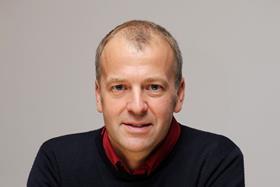National firm Hudgell Solicitors is to become the latest legal practice to choose John Lewis-style ownership following founder Neil Hudgell’s decision to transfer the majority of shares to an employee ownership trust (EOT). Hudgell, who established the firm in Hull in 1997, said the move is being taken to ‘embrace the talent’ within the business, to ‘give something back’ and to protect its long-term future.
Hudgell, which also has offices in Manchester and London, is one of the largest law firms to take the employee-ownership route, a trend pioneered by regional firm Stephens Scown in 2016. EOTs were established by the 2014 Finance Act as a way to allow company founders to protect their business legacy and maintain their way of running things. About 1,300 businesses have become employee owned through the scheme.
Under the new arrangement, employees at Hudgell will collectively acquire the majority stake in the business as a group, held on trust, enabling them to become involved in the firm’s decision-making as well as benefitting from profits.

Hudgell, winner of the 2021 Gazette Legal Personality of the Year award, will remain active, but said the time is right to give staff a ‘direct voice in the management and ownership of the business and its future’.
'Reaching the milestone of 25 years in business resonated with me more than I anticipated it might do, and having reached the age that I have, I turned my mind to the future,' he said.
'There are many law businesses that have been around 50 and 100 years, so my mind now is to create a bit of a legacy. The best way to do that, and protect the long-term future of the firm, is by embracing the talent we have in the business, elevating that and giving them more of a direct voice in the management and ownership of the business for the future.
'This will also ensure we retain the culture and ethos of the business, and provide continuity for our team and our clients.'
Hudgell will remain on the senior executive team alongside chief executive Rachel Di Clemente.
'I don’t expect that people will notice too many immediate changes, certainly from my perspective I’m going nowhere, this is about transitioning over a measured, quite considerable, period of time,' he said. 'I don’t see my role and involvement changing for five years or more, I still have the energy and passion for what I do, I still enjoy the work and I still enjoy the people, that’s not changed. This is all about the next 25 years and beyond.'
'Moving forward we need the business to reflect the views of the people that are a bit younger and perhaps have a bit of a different dynamic workwise. It’s about harnessing those different mindsets and different ways of working and encouraging the people with the ideas and energy to help themselves.'



























5 Readers' comments